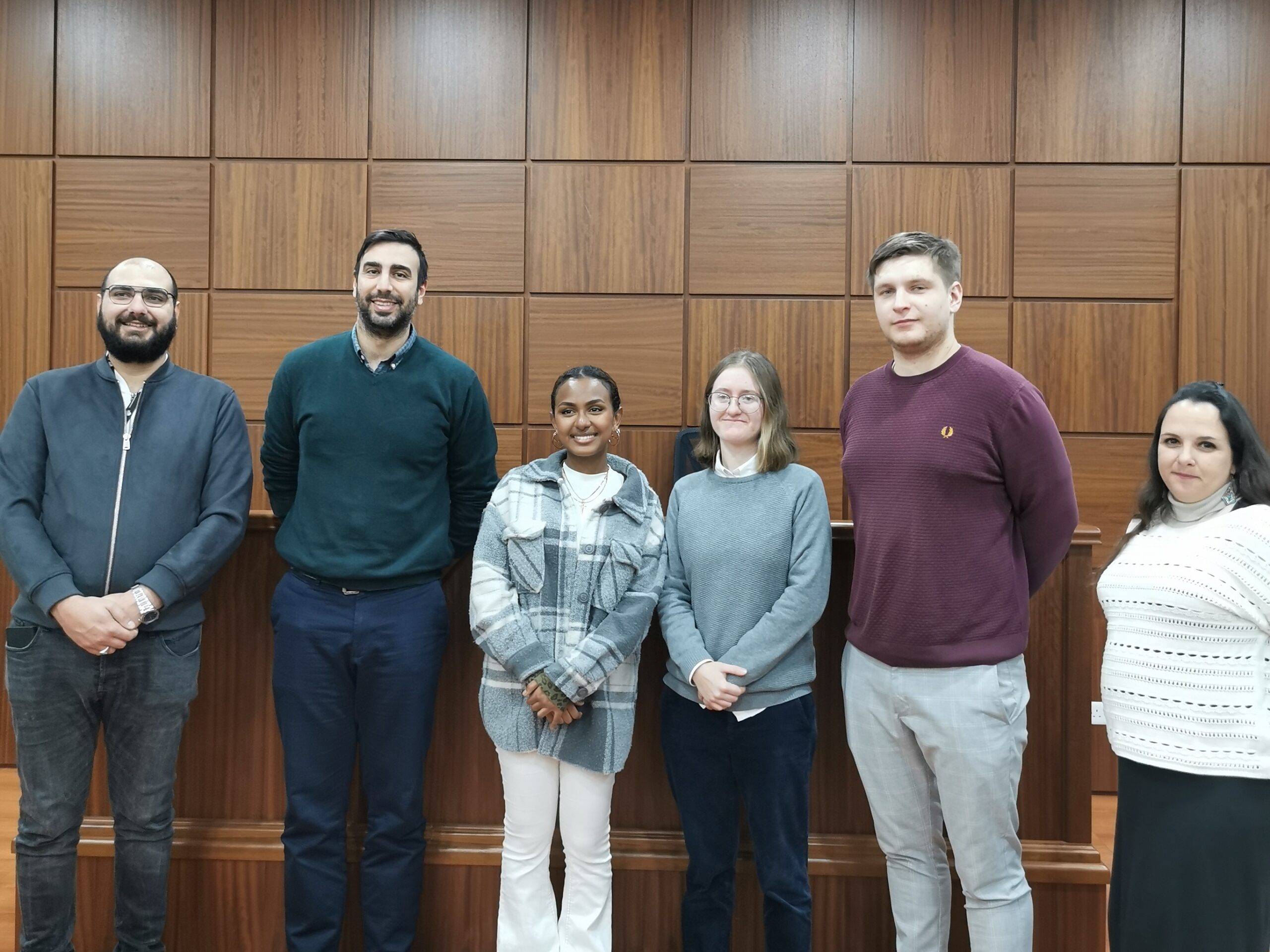
Posted on February 28, 2024
by Ksenia Fedoseeva
On the 1st of February 2024, the UCLan Cyprus Law Society, with the help of the University’s academics, coordinated an Oxford-Style legal debate with the following motion:
‘This House believes gender identity should be taught in schools’.
Both sides comprised of an academic and two law students, randomly assigned to argue for a specific side, which made for an entertaining and informative debate, guided by Dr Andreas Marcou who acted as the Chairman.
Dr Nasia Hadjigeorgiou, Andreas Papandreou and Bilean Daniel Beraki made arguments in support of the motion (proposition team), while Dr Nadia Kornioti, Alexander Studnev and Ksenia Fedoseeva acted as the opposition (opposition team).
Plenty of persuasive speeches and points of information revealed the intricacies of the debate on whether schools should teach gender identity, and many questions from the audience following the main action helped solidify both sides’ arguments. The audience participated in an anonymous vote before the debate, and excluding some abstentions, 7 voters agreed with the motion while 12 disagreed. At the end, the opposition managed to slightly extend their advantage, with the final votes showing 5 for and 13 against the motion.
All participants had done thorough research on the topic which made for a fascinating exchange of opinions, and their legal backgrounds revealed an interesting perspective on this socio-political issue. The proposition team made convincing arguments on the importance of understanding one’s identity from a young age and highlighted that the school environment is ideal for educating young minds responsibly on this issue, considering its important role of providing children with necessary knowledge and capability to counteract the frequent misinformation that pervades online sources, while presenting such teaching as necessary for raising tolerant, empathetic and peace-loving individuals.
The opposition team countered that the gender affirmative approach is partisan and not factual, emphasising the role of school in fostering critical thinking through fact-based subjects and developing general tolerance, suggesting schools should not teach ideologically-motivated ideas, particularly to still-developing and easily influenced school children, especially in the absence of exposure to religious or other factors that accompany an understanding of gender outside school.
The event inspired much discussion, with the audience keenly volunteering to pose questions for both sides, and we are excited to see more contentious topics explored in this format in future years.
Posted in Events